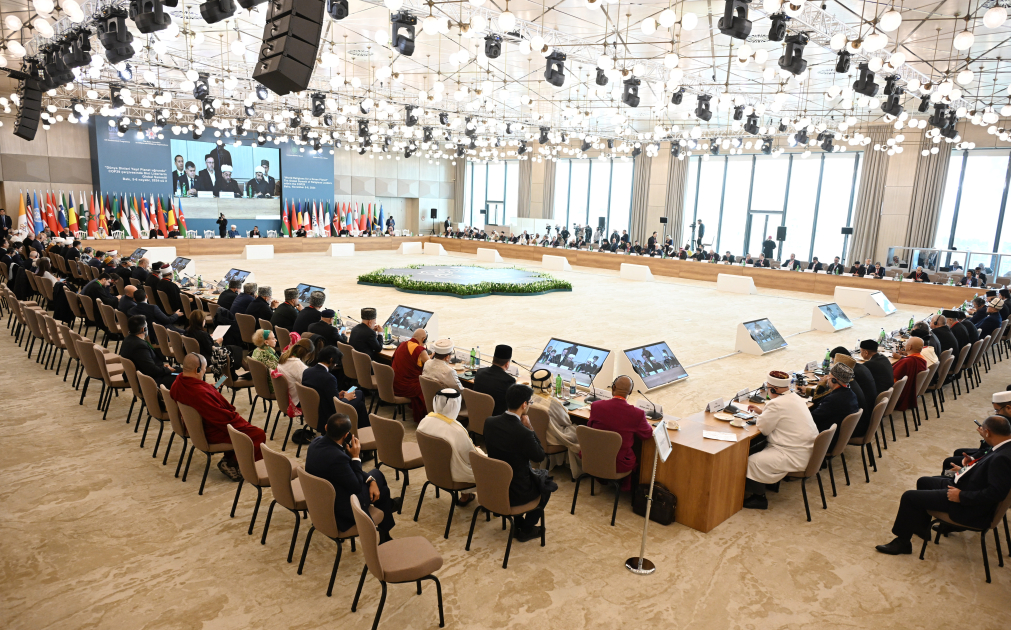“GEGHARD”
SCIENTIFIC ANALYTICAL
FOUNDATION
2026
2026
2024-11-08

Within the framework of COP29, a Global Summit of World Religious Leaders titled "World Religions for a Green Planet" was held on November 5-6 in Baku under the patronage of Azerbaijani President Ilham Aliyev. The summit was attended by religious leaders from various countries, predominantly representing Muslim communities. According to reports from Azerbaijani media, speakers expressed concerns over armed conflicts, violence based on religious and ethnic grounds, environmental disasters, and the destruction and looting of cultural and religious heritage. On November 7, summit participants also visited Shushi.
Indeed, the situation is ironic given that, in recent years, Azerbaijan has instigated armed conflicts, destroyed Armenian cultural and religious heritage, and violated environmental norms, among other issues. One can hope that the religious leaders who participated in the summit have "noticed" the destruction of Armenian cultural heritage in Shushi and will draw conclusions from it.
A few days earlier, Cardinal Claudio Gugerotti, prefect of the Dicastery for the Eastern Churches of the Holy See, held a meeting with Ramin Mammadov, chairman of Azerbaijan's State Committee on Work with Religious Institutions. According to Azerbaijani media, the Cardinal praised "Azerbaijan's tolerance towards different faiths as an example for other countries" and expressed high regard for Azerbaijan’s attention to the restoration of churches and temples.
Following the occupation of Artsakh, Azerbaijan has systematically destroyed and appropriated Armenian religious and cultural heritage, with numerous pieces of evidence documenting these actions. While the Cardinal speaks of "Azerbaijan's restoration efforts," in reality, the opposite process is taking place. One can only hope that the Holy See official addressed the cultural genocide in Artsakh during his meeting with his Azerbaijani official and urged an end to this destructive activity.
Indeed, Azerbaijan’s policy of violence and appropriation extends beyond Armenian cultural and religious heritage. For years, Azerbaijani authorities have been exploiting the Udi community, attempting to involve them in the "Albanianization" of Armenian heritage and the appropriation of Armenian churches. Shiite believers also face repression, with Azerbaijani law enforcement forces consistently subjecting them to pressure, arrests, and even killings.
It is regrettable that representatives of religious communities, through their participation and statements, indirectly support Azerbaijan’s policy of destroying Armenian heritage in Artsakh. Instead of condemning or trying to prevent these actions, they are, in effect, aiding in concealing them. The Geghard Foundation urges leaders and representatives of religious communities to contribute to the preservation of Armenian heritage in Artsakh, thereby truly performing a godly deed.